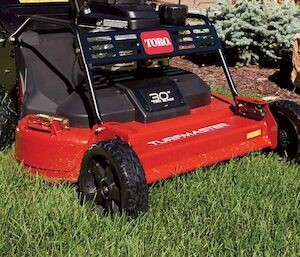A well-maintained lawn is the pride of any homeowner, serving as a vibrant backdrop for outdoor activities and enhancing the curb appeal of your property. Achieving a lush and healthy lawn requires more than just occasional mowing – it requires expert lawn care techniques tailored to the specific needs of your grass and soil. In this comprehensive guide, we’ll explore the key components of expert lawn care, from proper mowing and watering techniques to fertilization and weed control, helping you achieve the green oasis you’ve always dreamed of.
Understanding Your Lawn’s Needs:
Before diving into lawn care practices, it’s essential to understand the unique characteristics of your lawn, including grass type, soil composition, sun exposure, and climate conditions. Different grass species have varying requirements for water, sunlight, and maintenance, so identifying your lawn’s specific needs is the first step toward achieving optimal results.
Proper Mowing Techniques:
Mowing is a fundamental aspect of lawn care, but many homeowners overlook the importance of proper mowing techniques. To maintain a healthy lawn, follow these tips:
Set your mower blades to the appropriate height for your grass type, typically between 2.5 to 3.5 inches. Taller grass shades the soil, retains moisture, and promotes deeper root growth.
Avoid cutting more than one-third of the grass blade length in a single mowing session to prevent stress and scalping.
Alternate mowing patterns to prevent soil compaction and turf damage.
Effective Watering Practices:
Watering is crucial for maintaining a healthy lawn, but it’s essential to water wisely to avoid overwatering or underwatering. Follow these guidelines for effective watering:
Water deeply and infrequently to encourage deep root growth and drought resistance. Aim for 1 to 1.5 inches of water per week, including rainfall.
Water early in the morning to minimize evaporation and fungal growth, and avoid watering in the evening to prevent excess moisture buildup.
Use a rain gauge or soil moisture meter to determine when your lawn needs watering, and adjust your irrigation schedule accordingly.
Fertilization and Soil Health:
Fertilization plays a vital role in supplying essential nutrients to your lawn and promoting healthy growth. Consider the following tips for fertilizing your lawn:
Conduct a soil test to assess nutrient levels and pH levels, and tailor your fertilization program accordingly.
Choose a high-quality fertilizer formulated for your grass type and apply it according to the manufacturer’s instructions.
Consider organic fertilizers and soil amendments to improve soil health and microbial activity, enhancing nutrient uptake and water retention.
Weed Control and Pest Management:
Weeds and pests can wreak havoc on your lawn if left unchecked, so implementing effective control measures is essential. Here are some strategies for weed control and pest management:
Regularly inspect your lawn for weeds, insects, and diseases, and take prompt action to address any issues.
Use cultural practices such as proper mowing, watering, and fertilization to promote a healthy turf that can outcompete weeds and resist pests.
Consider targeted herbicides, insecticides, or organic pest control methods to manage weed and pest populations while minimizing environmental impact.
Expert Tips and Tricks:
In addition to the fundamental lawn care practices outlined above, consider incorporating the following expert tips and tricks to enhance the health and beauty of your lawn:
Aerate your lawn annually to reduce soil compaction, improve root penetration, and enhance nutrient uptake.
Overseed bare or thin areas of your lawn with grass seed suited to your climate and soil conditions to promote dense, lush turf.
Mulch grass clippings instead of bagging them to return valuable nutrients to the soil and reduce waste.
expert lawn care is essential for maintaining a lush, healthy lawn that enhances the beauty and value of your property. By understanding your lawn’s specific needs and implementing proper mowing, watering, fertilization, and pest management practices, you can achieve the green oasis you’ve always desired. Whether you’re a seasoned lawn care enthusiast or a novice homeowner, following these expert lawn care tips will help you master the art of lawn maintenance and enjoy a vibrant, thriving landscape year-round.

